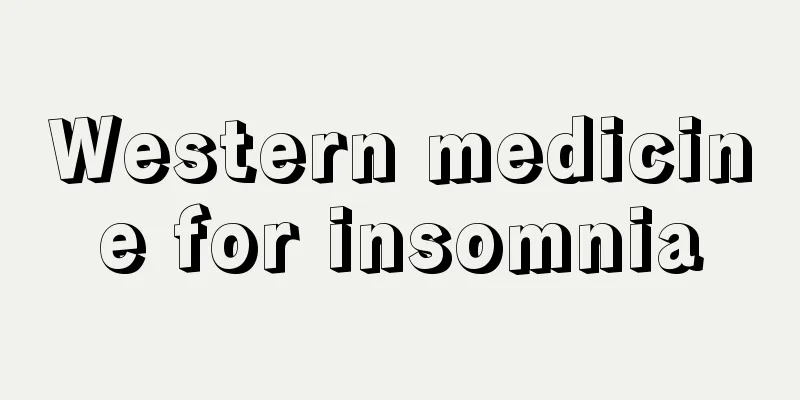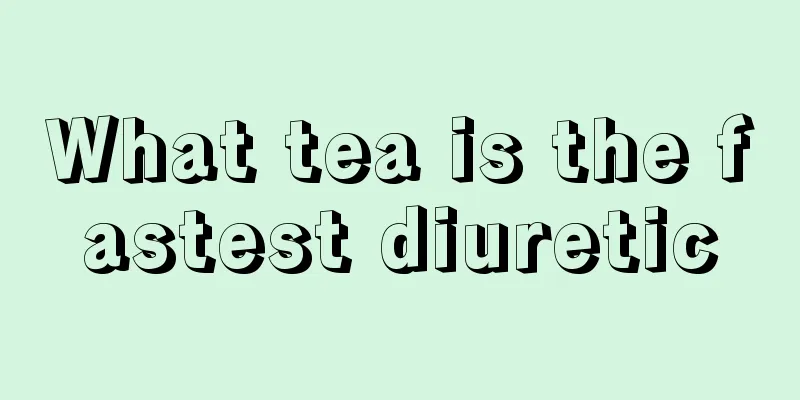Western medicine for insomnia

|
Insomnia is a common sub-health problem in today's society. Insomnia has a relatively large impact on human health, because it not only causes certain problems in people's mental state, but also directly reduces people's resistance and immunity, making people prone to disease. So, what drugs can treat insomnia? Here are some effective medicines for insomnia. 1. Antihistamines Several transient and small non-placebo trials found that diphenhydramine 25 to 50 mg improved subjective sleep latency and sleep quality, but tolerance developed after 3 to 4 days. Antihistamines should be avoided in patients taking cardiovascular medications, who have cognitive impairment, urinary retention, or difficulty urinating. 2. Melatonin Giving 10 volunteers 5 mg of melatonin at 8 pm shortened the sleep latency and prolonged subjective sleep; taking melatonin 15 minutes before bedtime did not shorten the sleep latency, suggesting that taking melatonin at different times has different effects. 3. L-Tryptophan A base for synthesizing melatonin, promoting sleep. Data released by the U.S. Food and Drug Administration in February 2001 showed that in 1989 at least 1,500 people who took L-tryptophan developed eosinophilia-myalgia syndrome, including 37 deaths, so the addition of L-tryptophan to food was restricted. 4. Valerian Tincture It is a valerian plant derivative that is classified as a nutrient by the U.S. Food and Drug Administration. Valerian tincture can activate adenosine receptors in rat cortical neurons and may also be a γ-aminobutyric acid (GABA) reuptake inhibitor, thereby increasing slow-wave sleep. Its withdrawal symptoms are similar to those of benzodiazepines (BZDs). Four reports indicate that valerian tincture can cause hepatotoxicity and is contraindicated in patients with active liver disease. Valerian tincture has been suggested to be a cytochrome P450 3A4 (CYP 3A4) inhibitor, but there are conflicting results. 5. Trazodone Trazodone is more commonly used to treat insomnia than depression. An early study gave 9 patients trazodone 150 mg/night for 3 weeks. Comparisons before and after drug withdrawal showed that trazodone did not improve sleep latency or total sleep time, but reduced wakefulness, increased slow-wave sleep (phase 3, 4 sleep), and improved subjective sleep quality, suggesting that trazodone can at least treat primary insomnia in the short term, but 50 mg is not as effective as zolpidem 10 mg |
>>: How to cure mouth ulcers_What cures mouth ulcers
Recommend
Burning sensation when applying aloe vera gel on face
Aloe vera gel is a skin care product made from fr...
How long does a 38-day-old baby sleep in a day?
A 38-day-old baby, that is, a baby who has just f...
What are the treatment options for frozen shoulder?
Periarthritis of the shoulder affects and trouble...
What examination items are needed for ovarian tumors
Ovarian tumors are common gynecological tumors. O...
Dust masks, what are the precautions when using dust masks
At present, air pollution is very serious, and sm...
How to wash off oil stains on clothes
The clothes we wear in autumn and winter are gett...
How many days after sex can it be detected
A family is complete and perfect only when it has...
Breath smells like alcohol
Bad breath is a phenomenon that is unique to each...
How much does radiotherapy for advanced laryngeal cancer cost
How much does radiotherapy cost for advanced lary...
Does sunbathing replenish yang energy?
A cold back can cause back pain, muscle cramps, d...
Can I take a shower if I'm sweaty?
In the summer, many people like to take a cold sh...
How many times should percutaneous interventional treatment for lung cancer be performed? Not necessarily, there are many related factors
It is hard to say how many times lung cancer pati...
What can’t be eaten with spring bamboo shoots
Spring bamboo shoots are a herb that grows in the...
There is protein in the urine
Protein is an essential nutrient for the human bo...
How to treat flat warts?
Flat warts are actually a common skin disease. Ma...









